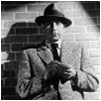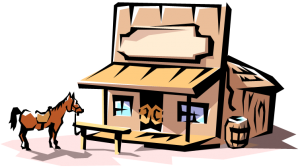 In my day, I was quite the basketball player. My reputation was cemented on the backyard court where I dominated my two friends. They couldn’t beat me no matter what strategies they devised. Trying outside shots didn’t work. Driving to the left or right didn’t gain them any advantage. Tricky passes were futile against me. There was nothing that they could do to win. I knew their game and the limitations of their ability because I studied them every day (the early days of my competitive intelligence career). That information let me anticipate and counter anything that they tried to do. Ah, the memories of the victories are still sweet.
In my day, I was quite the basketball player. My reputation was cemented on the backyard court where I dominated my two friends. They couldn’t beat me no matter what strategies they devised. Trying outside shots didn’t work. Driving to the left or right didn’t gain them any advantage. Tricky passes were futile against me. There was nothing that they could do to win. I knew their game and the limitations of their ability because I studied them every day (the early days of my competitive intelligence career). That information let me anticipate and counter anything that they tried to do. Ah, the memories of the victories are still sweet.
Knowing what my friends could and could not do served me well in those halcyon days.
That leads to a present day business question. Wouldn’t you and I always want to know everything we could about our competitors? Surprisingly, the answer is “no.” Sometimes competitive intelligence is optional.
Here are 4 instances when competitive intelligence matters little or not at all (maybe).
Read the rest of this entry

 One of the things that intrigues me about competitive intelligence is the types of relationships that are required to be successful. Intuitively I think and empirically I know that people matter most. We get assignments from them, ask them to tell us their fears and deliver implicit commentary on their performance even as we report on the competitive environment.
One of the things that intrigues me about competitive intelligence is the types of relationships that are required to be successful. Intuitively I think and empirically I know that people matter most. We get assignments from them, ask them to tell us their fears and deliver implicit commentary on their performance even as we report on the competitive environment. When I was growing up, there was a famous TV show named Dragnet. The show had evolved from a radio show of the same name and was famous for (at the time) what seemed like real life depictions of crime and the police work that followed. In retrospect, the scripts were pretty lame and the acting was exceptionally dry.
When I was growing up, there was a famous TV show named Dragnet. The show had evolved from a radio show of the same name and was famous for (at the time) what seemed like real life depictions of crime and the police work that followed. In retrospect, the scripts were pretty lame and the acting was exceptionally dry. One hundred and twenty years ago the scene in the American West would have been familiar. The scorching air would have been thick and dusty. The only street through the town of rickety boarded buildings would be crowded with cowboys and their horses. The one refuge from the oppressive conditions was the local saloon. And that was where you found all manner of folks. The tired cowhands, the frontier entertainers and the bad guys would be there. Everyone knew that the bad guys always came to the saloon looking for trouble. It was not a place for the unprepared or naïve because they were easily recognized and exploited. Winning for the bad guys was dominating the saloon.
One hundred and twenty years ago the scene in the American West would have been familiar. The scorching air would have been thick and dusty. The only street through the town of rickety boarded buildings would be crowded with cowboys and their horses. The one refuge from the oppressive conditions was the local saloon. And that was where you found all manner of folks. The tired cowhands, the frontier entertainers and the bad guys would be there. Everyone knew that the bad guys always came to the saloon looking for trouble. It was not a place for the unprepared or naïve because they were easily recognized and exploited. Winning for the bad guys was dominating the saloon.